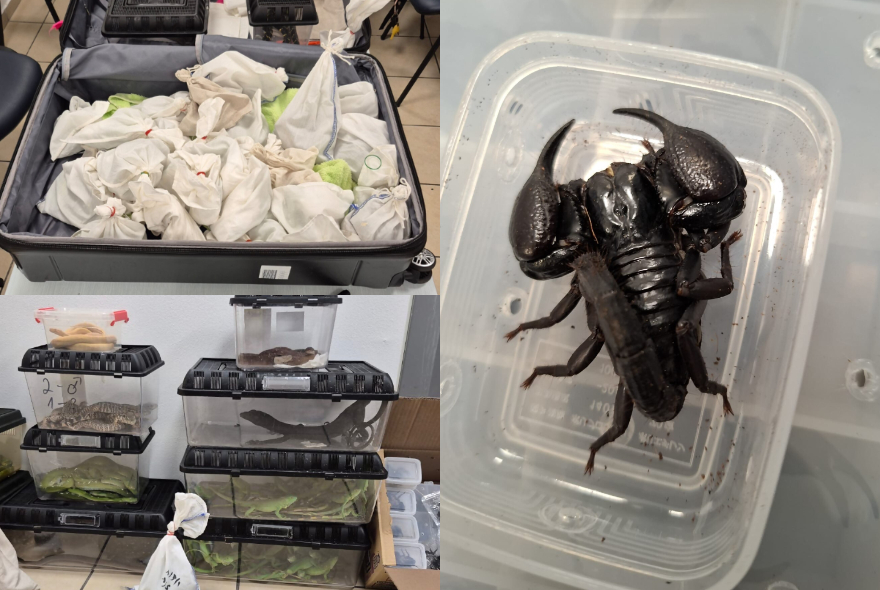
The vigilance of customs inspectors at Ben Gurion Airport today (Tuesday) thwarted an attempt to illegally smuggle about 140 animals from Thailand to Israel, all crammed into a single suitcase.
The suitcase contained a wide variety of dangerous exotic species, including species of snakes and lizards: iguanas, tree pythons, pythons, tegus, and scorpions.
All animals were transferred to the care of the veterinary services at the Ministry of Agriculture and Food Security.
The suspect, a 25-year-old resident of Jerusalem, was questioned by Nature and Parks Authority teams at the scene. An investigation file was opened on suspicion of crimes of trafficking and transfer without a permit, import without a permit, and damage to protected natural values and wildlife.
Director of the Captive Wildlife Division at the Israel Nature and Parks Authority, Uri Laniel, who arrived to handle the smuggling: "These are animals that are not native to Israel and arrived without medical examinations or permits. They all have the potential to transmit diseases, may become invasive species and carry parasites that may harm nature and humans."
"It's a terrible sight to see animals crammed like this, in unsuitable transport conditions. Most of them arrived in bad condition, after not eating for several days and being transported in freezing temperatures in the belly of the plane. Not one snake survived the journey. I thank the customs officers for their vigilance, which led to the illegal seizure of dozens of natural treasures smuggled into the country. We will continue to protect nature and ensure that the smuggler is brought to justice for all the serious offenses he committed."
The veterinarian responsible for import and export at the Veterinary Services of the Ministry of Agriculture and Food Security, Dr. Shlomo Grazi: "The phenomenon of animal smuggling is particularly cruel, and causes great suffering to the animals, who are crammed into a suitcase, without basic living conditions. Furthermore, the transport shocks the world of those animals, who until now were accustomed to their natural area and now must adapt, in an instant, to a different area and different climatic conditions.
"In addition, because the animals have not been tested, and we do not know their health status, they pose a real danger to public health and the health of other animals, and they could lead to disease outbreaks in Israel, and become invasive species that harm agriculture, animals, and nature in general."